Who is failing the climate? Are underreporting journalists, politicians in denial or fatalists, who insist that only the most aggressive few can survive, at fault? Are horrified white boys or an industrial complex that capitalize on this misery more to blame? The list of potential culprits may be long, but the ultimate raft of solutions needs to be even longer. Hysterics do not help, long-time activists remind. A complex collapse cannot possibly be tackled without doing away with the stereotype that the environment is only important for the white, middle-class. The colonized and exploited must have a voice and introduce positions on the problem. An enforced cooling down of the coronavirus crisis may as well offer a window of opportunity for a transition from an economy of exploitation and disposal towards fulfilling the needs of the many.
Are ecological crises inevitable? Eurozine looks at the cultural and political factors behind delayed responses to the climate emergency, and potential ways out of it.
This focal point is published with the support of Studio Europa Maastricht.

In collaboration with
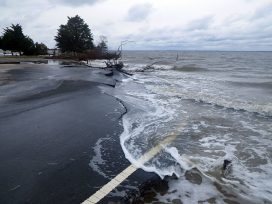
Hysterics do not help in crisis
How to transcend the climate change culture war
Climate change policy has become part of the culture wars where polarization stifles progress. Greenpeace UK’s Will McCallum surveys Britain’s role and demands a flexible approach.
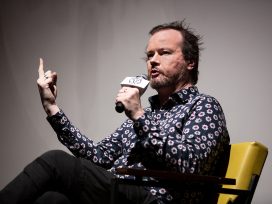
From ‘white boy horror’ to Oedipus Tyrannus, Timothy Morton addresses cultural phenomena that inform our moral choices in the face of the impending climate crisis. To save ourselves we must think collectively, at Earth magnitude. Could comedy be the answer?
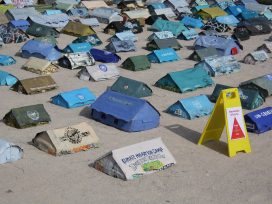
Rightwing nationalists push for keeping migrants out of their countries, even though their economies are sustained by the cheap and desperate labour force, created by the climate crisis. To defuse this paradox, Thomas Nail proposes to turn the model on its feet instead of its head by acknowledging that mobility has always been the reality of both people and nature.

How climate changes humans
Contrasting reads from the Eurozine archive
The Anthropocene is a fashionable research topic these days, and the imminent climate crisis seems to have finally started to shake the conscience of people all over the world. Though it wasn’t always this way, contributors to Eurozine’s partner journals have been covering these issues long before they became hot news items – and they offer important perspectives for today’s reader.
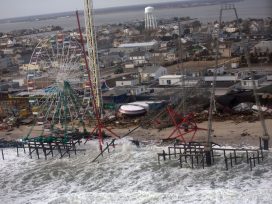
The ‘Anthropocene’ raises new questions about our collective responsibility for the fate of our planet. It prompts us to ask what we owe to future generations, who will face the consequences of today’s climate crisis, and what kind of democratic policies are needed to respond adequately.
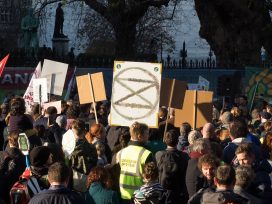
Civilization is doomed. Nothing can be done. The question is not ‘if’, but ‘when’. Anthropologist Aet Annist connects climate fatalism to global inequality, since angst about being inconvenienced assumes we live comfortable lives to begin with. Fear produces radically different responses: hope for individual survival or a demand for global intergenerational equality.

The secret history of radiation
An interview with Kate Brown
In the aftermath of the Chernobyl accident, international agencies dismissed local doctors’ warnings about a ‘public health catastrophe’ in order to suppress scandal over nuclear tests carried out by the West since the 1950s. Kate Brown talks to Aro Velmet about the secret history of radiation and what Chernobyl means in the era of climate change.
Progressive parties must bundle ecology, anti-authoritarianism and multiculturalism into a political project ‘beyond right and left’, argues Claus Leggewie. Resistance now means social and ecological campaigning against the dominant powers and ideas of industrial modernity. The right is called upon to take part in this new politics of concordance.
Climate change is the biggest story ever – and yet the media do not do it justice. To blame are a number of journalistic vices, from misinterpretation of the principle of neutrality to a failure to contextualize; from slavishness to conventional media formats to a tendency to individualize the problem. A new climate politics starts by resetting the media agenda.








